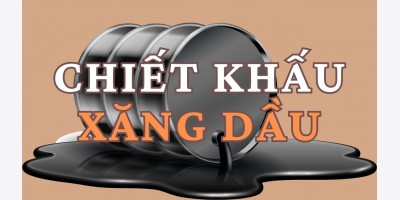Bạo lá»±c leo thang ở Libya đẩy giá dầu thô tăng mạnh
Trong phiên giao dịch châu Á sáng nay, giá dầu thô tiếp tục Ä‘à tăng trong phiên châu Âu hôm qua, vượt mức 94 USD/thùng và cÅ©ng là mức cao nhất kể từ ngày 03/10/2008 đến nay do được há»— trợ bởi thông tin vá» tình hình bạo lá»±c ở Libya leo thang, cÅ©ng nhÆ° sá»± nhiá»…u loạn chính trị Ä‘ang lan rá»™ng ở Trung Äông và Bắc Âu, càng giấy lên sá»± quan ngại vá» sá»± gián Ä‘oạn của nguồn cung dầu thô.
Giá dầu thô giao WTI kỳ hạn tháng 04 tại New York Ä‘ã tăng 8,9% so vá»›i phiên Ä‘óng cá»a ngày 18/02, trong khi giá dầu Brent tại London cÅ©ng chạm mức cao nhất kể từ tháng 09/2008 sau khi con trai của tổng thống- Libyan Muammar Qaddafi dá»a sẽ “tắm máu” nếu nhÆ° các cuá»™c nổi dáºy không kết thúc. Lá»±c lượng quân Ä‘á»™i của chính phủ Ä‘ã tấn công những ngÆ°á»i biểu tình và chống đối Ä‘òi kiểm soát Benghazi, thành phố lá»›n thứ hai ở quốc gia có nguồn dá»± trữ dầu thô lá»›n nhất của châu Phi.
Andrey Kryuchenkov, chuyên gia phân tích của VTB Capital cho biết hiện sản lượng dầu thô của Libya vào khoảng 1,5-1,6 triệu thùng/ngày, vì váºy bất cứ sá»± bất ổn xã há»™i nào ở Ä‘ây cÅ©ng gây ra sá»± quan ngại vá» sá»± gián Ä‘oạn nguồn cung.
Giá dầu thô WTI giao kỳ hạn tháng 04 tại New York vào lúc 8h30 sáng nay (giá» Việt Nam) Ä‘ang đứng ở mức 98,48 USD/thùng. Tối qua, thị trÆ°á»ng giao dịch ở New York Ä‘óng cá»a do Nghỉ lá»… ngày Tổng thống.
Trong khi Ä‘ó, giá dầu thô Brent tại London Ä‘ã tăng 3,22 USD/thùng (3,1%) lên mức 105,74 USD/thùng trong phiên hôm qua.
Libya là nhà sản xuất dầu thô đứng thứ 08 trong tổ chức các quốc gia sản xuất dầu thô thuá»™c khối OPEC, gần Ä‘ây Ä‘ã trở thành trung tâm biểu tình do bị kích Ä‘á»™ng sau khi tổng thống Tunisia bị láºt đổ cÅ©ng nhÆ° sá»± sụp đổ chính quyá»n của tổng tống Ai Cáºp- Hosni Mubarak.
Hiện má» dầu Nafoora của Libya Ä‘ã ngừng khai thác do biểu tình của công nhân.
Crude Oil Jumps to Two-Year High as Libya Violence Escalates
By Nidaa Bakhsh and Ben Sharples
Feb. 22 (Bloomberg) -- Oil jumped to the highest in more than two years as violence escalated in Libya, stoking concern crude supplies will be disrupted as turmoil spreads through the Middle East and North Africa.
New York futures for April delivery rose 8.9 percent from the close on Feb. 18, while London-traded Brent leapt to the highest since September 2008 after the son of Libyan leader Muammar Qaddafi threatened “rivers of blood” unless the uprising ends. Government forces attacked protesters and rebels claimed control of Benghazi, the second-biggest city in the country that has Africa’s largest crude reserves.
“Libya is producing 1.5 million to 1.6 million barrels a day, so any unrest is concerning,” Andrey Kryuchenkov, an analyst at VTB Capital, said by phone from London. “Until things settle there, prices are underpinned.”
Crude for April delivery rose as high as $98.48 and was at $97.65 a barrel in electronic trading on the New York Mercantile Exchange at 10:50 a.m. Sydney time. It closed at $89.71 on Feb. 18. Floor trading was closed yesterday for the Presidents Day holiday and electronic trades will be booked today for settlement purposes.
The March contract, which expires today, gained as much as $8.29 from Feb. 18 to $94.49 a barrel. The front-month contract is 17 percent higher from a year earlier.
Brent for April settlement on the London-based ICE Futures Europe exchange climbed $3.22, or 3.1 percent, to $105.74 a barrel yesterday.
Nafoora Oil Halt
Libya, the eighth-largest oil producer among those with quotas in the Organization of Petroleum Exporting Countries, has become the focal point of region-wide protests ignited by the ouster of Tunisia’s president and energized by the fall of Egypt’s President Hosni Mubarak.
Shokri Ghanem, chairman of Libya’s National Oil Corp., said he had no information about a disruption in production of crude. Al Jazeera reported earlier yesterday that Libya’s Nafoora oil field had stopped producing because of an employee strike.
Countries in North Africa and the Middle East were responsible for 36 percent of global oil output and held 61 percent of proved reserves in 2009, according to BP Plc, which publishes its Statistical Review of World Energy each June.
Iran, with output of 3.72 million barrels a day, is OPEC’s second-biggest producer, according to Bloomberg News estimates. Saudi Arabia is the largest oil producer.
Violence has flared in Yemen, Djibouti and Bahrain as governments sought to crack down on calls for reform, while demonstrations were reported in Iran and Morocco.
To contact the reporters on this story: Nidaa Bakhsh in London at nbakhsh@bloomberg.net; Ben Sharples in Melbourne at bsharples@bloomberg.net








